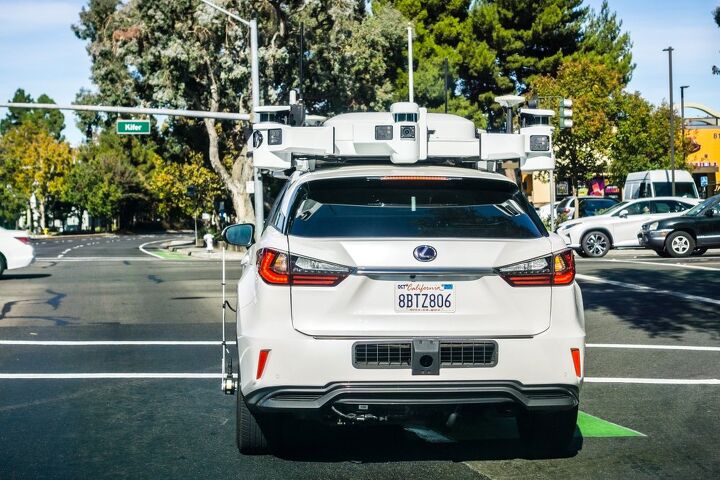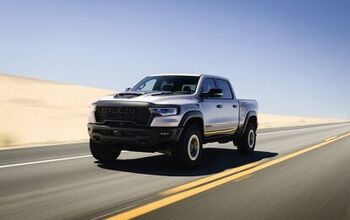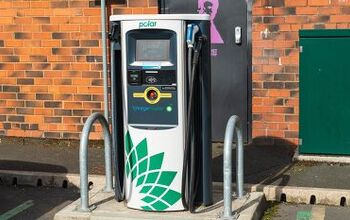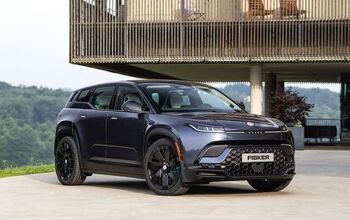Return of the Apple Car: Almost There or Vaporware?

After years of restarting and then killing its electric vehicle program, Apple has again signaled that it’s once again serious about developing something for your driveway. Ulrich Kranz, former Canoo CEO and brains behind the BMW i-cars, has reportedly been picked up by the company for its automotive team.
Apple has yet to verify the hire and Kranz hasn’t updated his LinkedIn profile. But there have been multiple reports that he’s been been taken aboard specifically for his EV expertise. Unless social networking platforms are becoming passé (fingers crossed), it’s likely that the tech company wanted to wait until it could make an official announcement accompanied by an update on development.
That’s assuming Apple is still doing a car, however.
One of my first articles for this website was about how the company had laid off a sizable percentage of the staff devoted to its vehicle program (known as Project Titan) in 2016. Since then, there has been boom and bust periods with employees taking the revolving-door approach. It was more-or-less the same situation other firms trying to build a self-driving automobile found themselves in.
For a time, Apple suggested it was focusing solely on hardware and software it would be selling to manufacturers. But it eventually became clear that the business was indeed attempting to build a consumer product with autonomous capabilities that could be integrated with iOS. It also began asking for autonomous testing permits from California’s Department of Motor Vehicles. During this time we learned it was already installing hardware on Lexus SUVs (for road testing) and Volkswagen T6 vans (for an employee shuttle service).
By 2018, everyone had begun suggesting that the company was back on track for building its own car. Another swath of layoffs hit the firm the following year, with many employees on the AV program being moved to other departments. Some have argued this coincided with the return of engineer Doug Field, who was back from Tesla for the second time. It also acquired the autonomous vehicle startup known as Drive.ai. Employees were then funneled slowly back into the program with new, high-profile hires coming in from outside the company — many of whom had years of expertise in vehicle development.
Fast forwarding to 2021, we’ve seen Apple commence and then abandon talks with Hyundai Motor Group to build an automobile. This was proceeded by news that LG Magna e-Powertrain could be helping to deliver Apple Cars in limited quantities and that the tech giant was actually still in talks with Korean automakers.
When April came, we didn’t really know what to think. Apple had said it was going to make a big announcement about the project in the coming months and then immediately lost several top managers. Speculation ran rampant with media suggesting the firm was going to pivot toward a Waymo-like taxi service or simply return to its original idea of selling AV software. But now we know it has started discussions with Chinese battery suppliers (CATL and BYD) and just hired Ulrich Kranz.
If the last few years has taught me anything, it’s that corporations are excellent at keeping your expectations high while they perpetually shift the goalpost. Like all autonomous programs, targets for the Apple Car have been constantly revised and progress on the vehicle has been obfuscated to a degree that almost makes it impossible to discuss seriously. The data we currently have points to the business preparing for another offensive. But there have been at least two of those already and neither resulted in anything tangible. The ghost of Steve Jobs never appeared at trade shows piloting an Apple-branded prototype and there have been no teaser clips of a silhouetted vehicle reminding us to stay tuned for any presumed products. Unless you count the Lexus test beds affixed with sensor arrays, we’ve seen neither hide nor hair of anything that would even approximate there being an “Apple Car.”
And yet there’s all this circumstantial evidence that the firm is clearly trying to develop an automobile.
In 2015, Apple stated that it would have something for us by 2019. That date predictably came and went, mimicking the trajectory of every other brand attempting to build something that could drive itself, and the tech giant has only gotten more secretive about its overall progress. New estimates place Apple delivering something in 2024, or perhaps later. But it’s become difficult to understand why we should believe in that timeline when we’ve seen precious little in the way of progress. At least all of those engineers and programmers are earning a paycheck until there’s another round of layoffs.
[Image: withGod/Shutterstock; Sundry Photography/Shutterstock]

A staunch consumer advocate tracking industry trends and regulation. Before joining TTAC, Matt spent a decade working for marketing and research firms based in NYC. Clients included several of the world’s largest automakers, global tire brands, and aftermarket part suppliers. Dissatisfied with the corporate world and resentful of having to wear suits everyday, he pivoted to writing about cars. Since then, that man has become an ardent supporter of the right-to-repair movement, been interviewed on the auto industry by national radio broadcasts, driven more rental cars than anyone ever should, participated in amateur rallying events, and received the requisite minimum training as sanctioned by the SCCA. Handy with a wrench, Matt grew up surrounded by Detroit auto workers and managed to get a pizza delivery job before he was legally eligible. He later found himself driving box trucks through Manhattan, guaranteeing future sympathy for actual truckers. He continues to conduct research pertaining to the automotive sector as an independent contractor and has since moved back to his native Michigan, closer to where the cars are born. A contrarian, Matt claims to prefer understeer — stating that front and all-wheel drive vehicles cater best to his driving style.
More by Matt Posky
Latest Car Reviews
Read moreLatest Product Reviews
Read moreRecent Comments
- Lou_BC Well, I'd be impressed if this was in a ZR2. LOL
- Lou_BC This is my shocked face 😲 Hope formatting doesn't fook this up LOL
- Lou_BC Junior? Would that be a Beta Romeo?
- Lou_BC Gotta fix that formatting problem. What a pile of bullsh!t. Are longer posts costing TTAC money? FOOK
- Lou_BC 1.Honda: 6,334,825 vehicles potentially affected2.Ford: 6,152,6143.Kia America: 3,110,4474.Chrysler: 2,732,3985.General Motors: 2,021,0336.Nissan North America: 1,804,4437.Mercedes-Benz USA: 478,1738.Volkswagen Group of America: 453,7639.BMW of North America: 340,24910.Daimler Trucks North America: 261,959



































Comments
Join the conversation
Apple won't be building a car. Even *they* couldn't conjure up a battery plant, or the factory, or the personnel, or the required support structure to do it for many years. If Tesla has taught us anything, it's that building cars is hard. Besides, their whimsical commitment to cars and AV tech puts them next to Faraday Future in my mind. Maybe, maybe they'll sell some tech to somebody, but that's about it.
a Microsoft car would be an assault vehicle